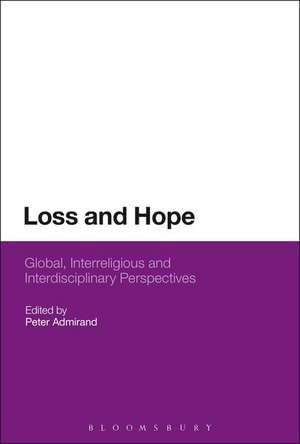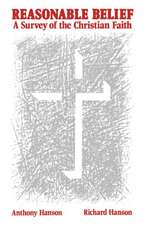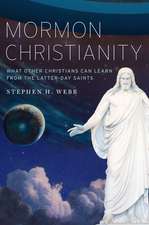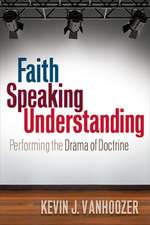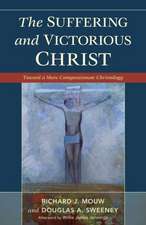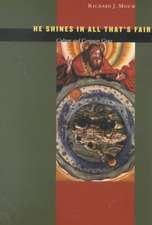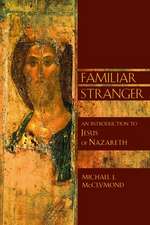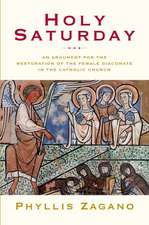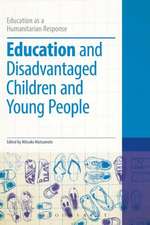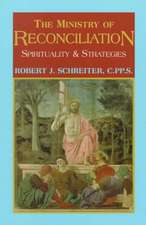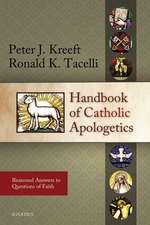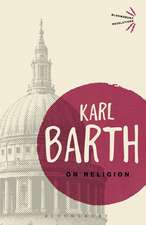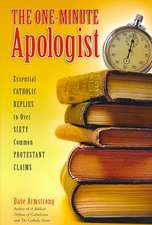Loss and Hope: Global, Interreligious and Interdisciplinary Perspectives
Editat de Peter Admiranden Limba Engleză Paperback – 18 noi 2015
| Toate formatele și edițiile | Preț | Express |
|---|---|---|
| Paperback (1) | 257.68 lei 43-57 zile | |
| Bloomsbury Publishing – 18 noi 2015 | 257.68 lei 43-57 zile | |
| Hardback (1) | 774.20 lei 43-57 zile | |
| Bloomsbury Publishing – 21 mai 2014 | 774.20 lei 43-57 zile |
Preț: 257.68 lei
Preț vechi: 295.48 lei
-13% Nou
Puncte Express: 387
Preț estimativ în valută:
49.31€ • 51.62$ • 40.80£
49.31€ • 51.62$ • 40.80£
Carte tipărită la comandă
Livrare economică 07-21 aprilie
Preluare comenzi: 021 569.72.76
Specificații
ISBN-13: 9781474264815
ISBN-10: 1474264816
Pagini: 264
Dimensiuni: 156 x 234 x 25 mm
Greutate: 0.37 kg
Editura: Bloomsbury Publishing
Colecția Bloomsbury Academic
Locul publicării:London, United Kingdom
ISBN-10: 1474264816
Pagini: 264
Dimensiuni: 156 x 234 x 25 mm
Greutate: 0.37 kg
Editura: Bloomsbury Publishing
Colecția Bloomsbury Academic
Locul publicării:London, United Kingdom
Caracteristici
Written by international leading scholars and thinkers such as Francis X. Clooney and Felix Wilfred
Notă biografică
Peter Admirand is Lecturer in the School of Theology, Mater Dei Institute, Dublin City University, Ireland.
Cuprins
Foreword by Philip Bialowitz (Holocaust Survivor, Sobibor)IntroductionPart I: Survivors and Victims' Perspectives on Loss and Hope1. A Collective Testimony by Argentine Genocide Survivors: 'The Prison Walls Cry and We Laugh', Alicia Partnoy (Loyola Marymount University, USA)2. Classicide in Communist China: A Laogai Survivor's Reflection, Harry Wu (Laogai Research Foundation & Laogai Museum Washington, USA)3. The Politics of Representations of Mass Atrocity in Sri Lanka: Challenges to Justice and Recovery, Jude Lal Fernando (Trinity College Dublin,Ireland)4. Torturing God at the Villa Grimaldi, Chile: Loss of Human Dignity, Hope of Unity, Mario Aguilar (University of St Andrews, Scotland)5. The Iranian Women's Movement: A Narrative of Hope and Loss, Roja Fazaeli (Trinity College Dublin, Ireland)Part II: Interfaith Perspectives on Loss and Hope 6. The Virtue of Christian Learning from Other Religions: The Substance of Things Hoped For, Francis X. Clooney (Harvard Divinity School, USA)7. A Healing Process in Jewish Theology: From Passivity to Protest to Peace, Anson Laytner (Seattle University, USA) 8. May Buddhists Hope? A Christian Enquiry, John D'Arcy May (Trinity College Dublin, Ireland)9. Suffering and Loss within Shi'i and Catholic Traditions in Dialogue, Kieran Flynn (St Patrick's College, Ireland)10. The Paedophile Scandal and its (Hoped-for) Impact on Catholic Intra- and Inter-religious Dialogue, Peter Admirand (Dublin City University,Ireland)Part III: Ethical and Interdisciplinary Perspectives on Loss and Hope 11. Intercultural Resources for Reconciliation and Peace: Drinking From Our Own Wells, Felix Wilfred (State University of Madras, India)12. Loss and Hope in Levinas's Otherwise than Being and Vasily Grossman's Life and Fate, Steven Shankman (University of Oregon, USA)13. Practicing A-tonal Ethics: The Loss of Old Certainties as the Ground of Our Hope, Celia Kenny (Centre for Law and Religion, Cardiff University, Wales)14. Losing Confidence in Free-Market Economics and Free-Market Religion: Recovering True Hope, Joerg Rieger (Southern Methodist University,USA)15. Journey from Optimism to Hope (David Burrell, Notre Dame University, USA)Afterword, Fulata Moyo (World Council of Churches)
Recenzii
"Loss" and "hope" are not only universal features of human existence; they also characterize much of contemporary sentiment. Moving and thought-provoking, the case studies and principle reflections in this volume envisage crucial human experiences within a global, multi-religious and multi-perspectival framework. They shed fresh light on our understanding of the human condition.
Loss and Hope brings together survivors, scholars and activists in a global inter-religious dialogue that both honours and transcends the particular political, geographical and historical context of trauma. More than merely inspirational, this collection gives hope to despair in a fully plural ensemble of critical theological voices. This is a massive contribution to conflict studies, contemporary public theology and to the wider understanding of the nature and range of human spiritual resistance.
The authors in this volume Loss and Hope are all reflective, "mature," persons in the sense that they have experienced serious, often devastating, loss of many different kinds. And yet-because-they held onto, or were grasped by, or mysteriously both, hope, they are the more human, and therefore "divine," however mysteriously understood.
In this bold, original, and timely collection of essays, Admirand has assembled leading international and interreligious voices of human rights. With this volume Admirand emerges as a new champion of the suffering by demonstrating the genuine service that academics can offer to the oppressed. He offers a beacon of hope to all who question the meaning of their suffering.
Loss and Hope brings together survivors, scholars and activists in a global inter-religious dialogue that both honours and transcends the particular political, geographical and historical context of trauma. More than merely inspirational, this collection gives hope to despair in a fully plural ensemble of critical theological voices. This is a massive contribution to conflict studies, contemporary public theology and to the wider understanding of the nature and range of human spiritual resistance.
The authors in this volume Loss and Hope are all reflective, "mature," persons in the sense that they have experienced serious, often devastating, loss of many different kinds. And yet-because-they held onto, or were grasped by, or mysteriously both, hope, they are the more human, and therefore "divine," however mysteriously understood.
In this bold, original, and timely collection of essays, Admirand has assembled leading international and interreligious voices of human rights. With this volume Admirand emerges as a new champion of the suffering by demonstrating the genuine service that academics can offer to the oppressed. He offers a beacon of hope to all who question the meaning of their suffering.
